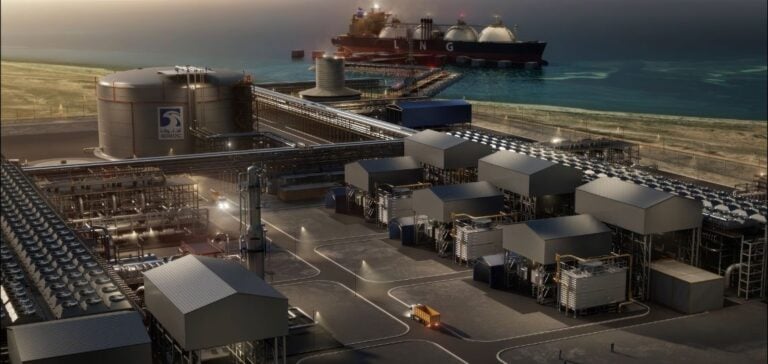ADNOC Gas, the gas arm of Abu Dhabi National Oil Company (ADNOC), is in the advanced stages of negotiations to transform preliminary agreements into definitive LNG sales contracts for its Ruwais LNG project.
These agreements, signed with major partners such as Shell, Mitsui and Osaka Gas, set the price at a competitive 12.6% of the price of a barrel of oil, reflecting market conditions at the time of signing.
These contracts are designed to secure LNG sales in an environment where market players are seeking to anticipate a possible drop in prices due to an increase in global supply.
In this way, ADNOC, as a leading producer, seeks to consolidate its position while ensuring the profitability of its investments.
Context and challenges for ADNOC
The global liquefied natural gas market is currently in a transitional phase.
Faced with the prospect of increased supply capacity from Qatar and the United States from 2026 onwards, buyers are adopting a cautious stance, hoping to negotiate more advantageous terms.
ADNOC is anticipating these developments by accelerating the finalization of its agreements in order to lock in prices before the market adjusts downwards.
The Ruwais LNG project, with a planned capacity of 15 million metric tons per year (MMt/y) thanks to two new production units, represents a central pillar of ADNOC’s gas strategy.
Current agreements, already representing 70% of this capacity, illustrate ADNOC’s determination to maintain a strong presence on the international market.
LNG market outlook
The contracts under negotiation, although preliminary, offer significant flexibility to buyers, a factor which partly justifies the premium added to the price.
LNG cargoes are destined for several key destinations, including the terminals of Osaka Gas and its Singapore subsidiary, OGEST.
This flexibility includes clauses on quality specifications, volumes and delivery windows, crucial elements for buyers operating in volatile markets.
By securing these sales, ADNOC not only ensures stable revenues for years to come, but also strengthens its ability to attract partners for future projects.
The speed with which these agreements are finalized is essential to avoid margin erosion, especially in an environment where the market could become more competitive with the arrival of new sources of supply.





















